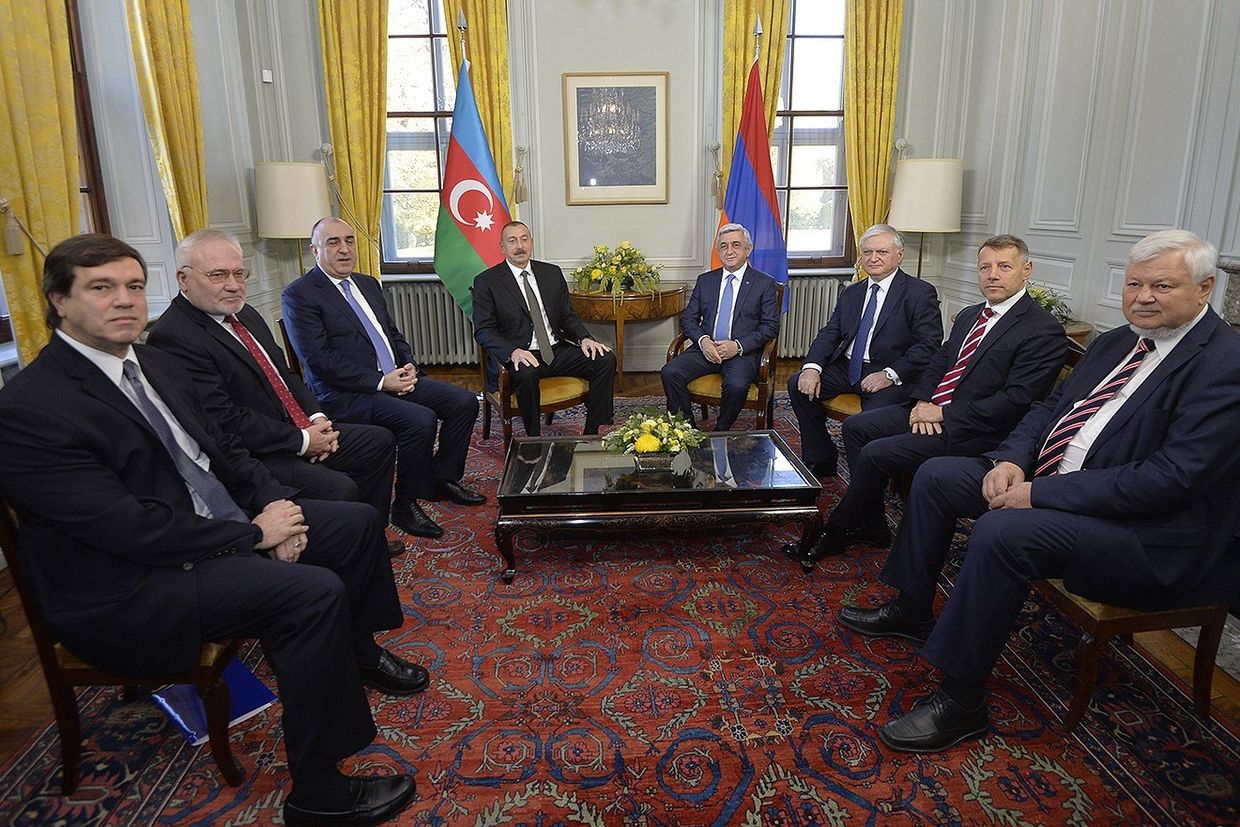
Armenian Prime Minister Nikol Pashinyan and Belarusian President Aliaksandr Lukashenka got into an argument during yesterday’s Supreme Eurasian Economic Union (EAEU) Council session, with Pashinyan announcing that Armenia would also attend next year’s meeting, set to be held in Minsk in May, remotely.
It was the latest public display of tension between Armenia and Belarus.
Pashinyan attended the Thursday EAEU session held in Saint Petersburg remotely after testing positive for COVID-19.
The dispute began when, during the meeting, Lukashenka joked that they perceived Pashinyan as a ‘new and younger’ member of the organisation because Pashinyan had shaved his beard. He also reproached those preferring to attend the meeting remotely, underscoring that it did not concern Pashinyan’s physical absence on the same day.
In response, Pashinyan stated that the Armenian delegation would participate in the next meeting of the Supreme EAEU Council in Minsk in May 2025 remotely.
Belarus will chair the economic union, consisting of Armenia, Belarus, Kazakhstan, Kyrgyzstan, and Russia, for the next year, taking over from Armenia, which chaired the union over 2024.
‘What’s your problem? Is it far to Minsk? Is there nobody to give you a ride? We will organise the transportation for your delegation if needed’, Lukashenka said.
Pashinyan responded that he had already made ‘a public statement on this matter, and this statement remains in force’, adding that he did not consider the EAEU ‘the right format to discuss these issues’.
‘You raised this issue, and I should have responded immediately so there was no misunderstanding’, he added.
Lukashenka said that they would ‘consider [Pashinyan’s] statement’, to which Pashinyan responded that his statement was ‘not a subject to consideration. It is already a decision’.
In turn, Lukashenka hinted that technical issues might hinder organising the remote participation of the Armenian delegation — ‘Maybe there will be no TV so that you can speak remotely’.
‘No problem,’ Pashinyan said, adding ‘I understand, maybe TV has also become a problem for you, we approach it with understanding’.
Following the meeting, Pashinyan posted a video of the dispute, suggesting that the Armenian delegation ‘will participate remotely or will not participate in the EAEU sessions in Belarus’.
An increasingly tense relationship
Ties between Armenia and Belarus have been in freefall since June, when Pashinyan said that no Armenian officials would visit Belarus while Lukashenka was in power, due to Lukashenka’s support for Azerbaijan during the Second Nagorno-Karabakh War of 2020.
Previously in May, amidst the continuing crises between CSTO–Armenia, Pashinyan told parliament that at least two CSTO members, likely referring to Belarus and Russia, participated in preparing for war against Armenia in 2020, with the goal of destroying Armenia’s statehood.
In June, Politico published a report based on leaked documents detailing the alleged supply of advanced military hardware from Belarus to Azerbaijan between 2018 and 2022.
During this period, Azerbaijan launched the Second Nagorno-Karabakh War, after which it finalised its military victory when Nagorno-Karabakh surrendered in September 2023.
Several other major clashes took place on the Azerbaijan–Armenia border in 2021 and 2022, during which Azerbaijan gained control over 150 square kilometres of territory inside Armenia, according to Yerevan.
Speaking in November 2022, Azerbaijani President Ilham Aliyev appeared to gloat over the country’s ties to other CSTO members, stating that ‘the number of our friends in this organisation is higher than those of Armenia’.
In August 2024, Lukashenka questioned Armenia’s foreign policy in an interview with Russian TV channel Rossiya, saying ‘Who needs Armenians besides us? No one’. In response, a group of protesters threw vegetables and eggs at the Belarusian Embassy in Armenia, calling on them to ‘get out of Armenia’.
According to Russian presidential aide Yuri Ushakov, Armenia ‘requested’ Thursday’s Supreme EAEU Council session to be held in Russia. Pashinyan commented earlier in December that it would be ‘inappropriate’ to hold the EAEU session in Armenia because not all members are ‘desirable’ for Armenia — a reference to Belarus and Lukashenka.











